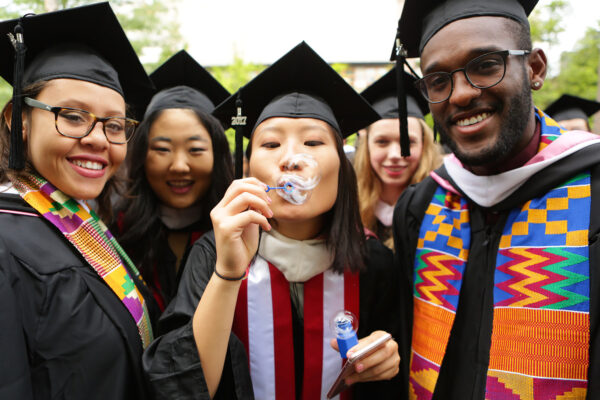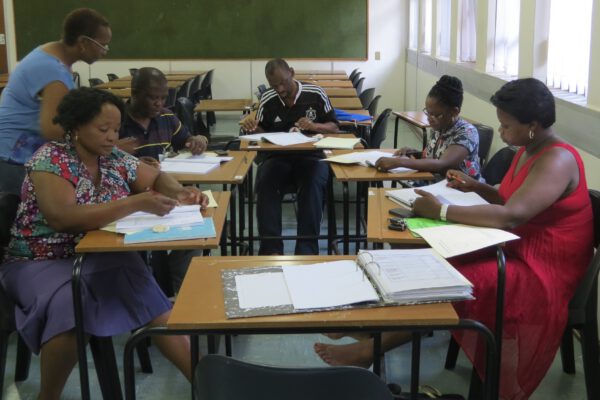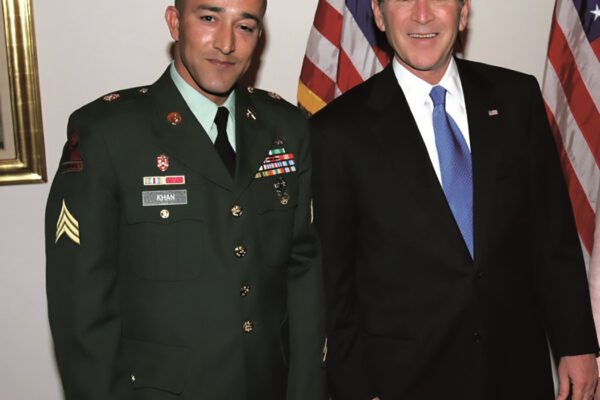Q&A: Cari Vanderkar Moore on ACE’s Institute for Leading Internationalization
In order for the United States to have a truly world-class higher education system, colleges and universities must be globally engaged and prepare students to be citizens of a multicultural community both at home and in a globalized world. Institutions accomplish this by having a multi-dimensional, comprehensive strategy that includes internationalization at home and engagement with global issues and partners. Each year, ACE offers the Institute for Leading Internationalization, a professional development experience designed for campus leaders who have a critical role in advancing internationalization on their campuses.
Below, Cari Vanderkar Moore, director of the Cal Poly International Center, discusses her experience attending the Institute.
Why did you apply to the ACE Institute for Leading Internationalization (ILI)?
I learned about the ILI when I was offered my new position as director of the Cal Poly International Center and senior international officer for the institution. Kathleen Enz Finken, who serves as provost for Cal Poly San Luis Obispo, has worked with ACE for a number of years, and has presented at the institute on the provost’s perspective on internationalization. Dr. Enz Finken encouraged me to attend the institute.
What kind of person would benefit the most by participating in the ILI?
Campus administrators and faculty leading or engaged in internationalization efforts at their institutions would benefit from the ILI. Not only were the presentations by current and former university presidents, provosts and other leaders effective, informative and timely, but the opportunity to network with colleagues from around the country was invaluable. Participants came from campuses at varying stages of internationalization—from barely getting started to quite accomplished. This made for rich discussions and opportunities for idea and resource sharing.
What was your follow-on project after the ILI?
My follow-on project focused on building a more effective and comprehensive infrastructure for supporting the success of international students. In November, I formed a Task Force on International Student Retention and Success, bringing in broad campus representation from housing, advising, student life, the Dean of Student’s office, English language programming, the Writing and Rhetoric Center, the Center for Teaching and Learning, advancement, and community members in addition to faculty representation.
The Task Force has been charged with developing recommendations for an enhanced and well-defined infrastructure for supporting international students at Cal Poly with a mind set on growth (increasing degree-seeking international students from around 1 percent to upwards of 5 percent in the next 10 or more years). The recommendations will inform the campus strategic plan for internationalization.
How has your participation in the ILI contributed to your own professional development?
The ILI inspired me to think about my values and vision of international education and how they inform my leadership in internationalization efforts at Cal Poly. I believe in relationship building, establishing shared vision and gaining understanding of what internationalization means to stakeholders. The collaboration from faculty and staff on a fall Internationalization Symposium and in the two task forces running this academic year—on international student retention and success and on curriculum internationalization—has been significant and inspirational, and is helping to build our foundation for a strategic plan for internationalization.
How has the ACE/CIGE Model for Comprehensive Internationalization helped further the international goals at your institution?
I presented the ACE/CIGE Model for Comprehensive Internationalization during the first annual Cal Poly Internationalization Symposium during IE Week. I later brought it to the President’s Leadership Council. It is an effective tool for campus stakeholders to gain mutual understanding quickly of the pillars of comprehensive internationalization.
Applications for the 2015 ACE Institute for Leading Internationalization are now being accepted. Click here to learn more.
If you have any questions or comments about this blog post, please contact us.



